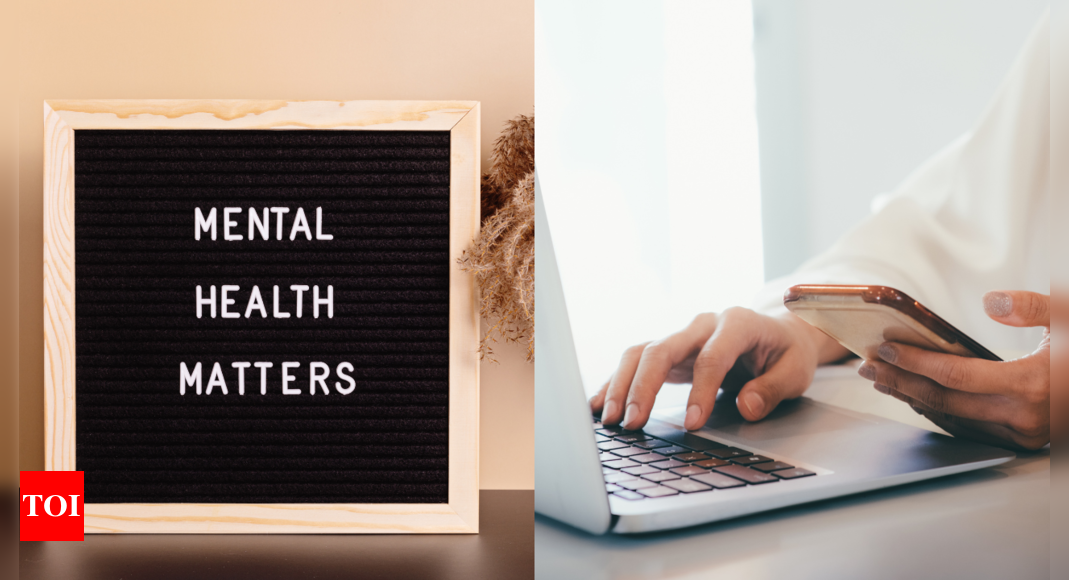The Internet is a highly resourceful tool. We can get ANY kind of information we want – from simple smoothie recipes to trending song lyrics to discounted products during end-of-season sales. Isn’t it amazing? However, there are some things you need to be very careful about when using the Internet. One of them is diagnosing whether you have any health problems, especially those related to taboo topics like mental health. Even in this day and age, with so much information surrounding mental health awareness, it can be personally difficult for you to talk to someone when you are feeling upset. anxious or depressed, especially if you’re not sure why. In such cases, we end up looking for answers on the internet – where there are many interesting things.
Here’s the problem
Looking for a diagnosis on the internet is not the best decision. There is a lot of content around mental health on various platforms such as YouTube, TikTok, Facebook etc., which may not be accurate and does not come directly from a medical professional. Viewing such content may deceive you into believing that you have a certain mental health condition, which you may or may not have. This can make you feel confused, anxious, and even increase your anxiety. A review of 500 TikTok mental health videos by virtual healthcare platform PlushCare found that only 54% contained accurate information. 84% contained misinformation (lots of good and bad information.) Furthermore, 14% contained enough potentially damaging information.
Lack of expertise
One of the main reasons self-diagnosis is difficult is lack of expertise. Mental health conditions are complex and multifaceted, often requiring years of specialized training and clinical experience to accurately diagnose. Relying solely on online resources or personal observations does not provide the comprehensive understanding and nuanced assessment that a trained mental health professional can provide.
Confirmation bias
Even if the sources you rely on are trustworthy and the information comes from a certified mental health professional, you may still not be able to accurately self-diagnose your mental health condition . Humans have a natural tendency to seek information that confirms their preconceived beliefs or suspicions. So, when trying to self-diagnose your mental health condition, you may unconsciously focus on information that supports your diagnosis while ignoring or downplaying conflicting evidence. This confirmation bias can lead to a skewed view of your mental health and make you feel worse.
Delay treatment
Self-diagnosis can lead to significant delays in seeking professional help. Some people may convince themselves that their symptoms are not severe enough to need treatment or that they can manage their condition on their own. Delayed intervention can cause symptoms to become more severe and even life-threatening in cases of severe mental illness.
Inability to understand potential root causes
Self-diagnosis can cause individuals to focus on surface-level symptoms while ignoring underlying problems. For example, someone may assume their anxiety is just due to work-related stress without recognizing childhood trauma as a contributing factor. Ignoring these root causes can hinder progress in therapy and hinder long-term recovery.
Self-stigma and labeling
When individuals self-diagnose, they may unintentionally label themselves with mental health conditions that they do not actually have. This self-stigma can lead to negative self-concept and limit personal growth and self-acceptance. It’s important to remember that a mental health diagnosis is a tool for understanding and treating symptoms, not a definition of a person’s identity.
Ability to self-treat mistakes
Armed with the ability to self-diagnose, individuals can try to self-treat their mental health conditions using strategies they find online or hear from others. Inappropriate self-treatment can lead to further distress, worsening of symptoms, or even harmful consequences.
What should you do?
Real mental health improvement often requires collaboration with trained professionals. While it’s great to be aware of mental health and understand when you’re not feeling well, the final diagnosis must be made by a certified mental health professional. Remember that seeking professional help is a responsible step toward understanding and managing your mental health. Read more: These 7 healthy lifestyle habits can help prevent depression










